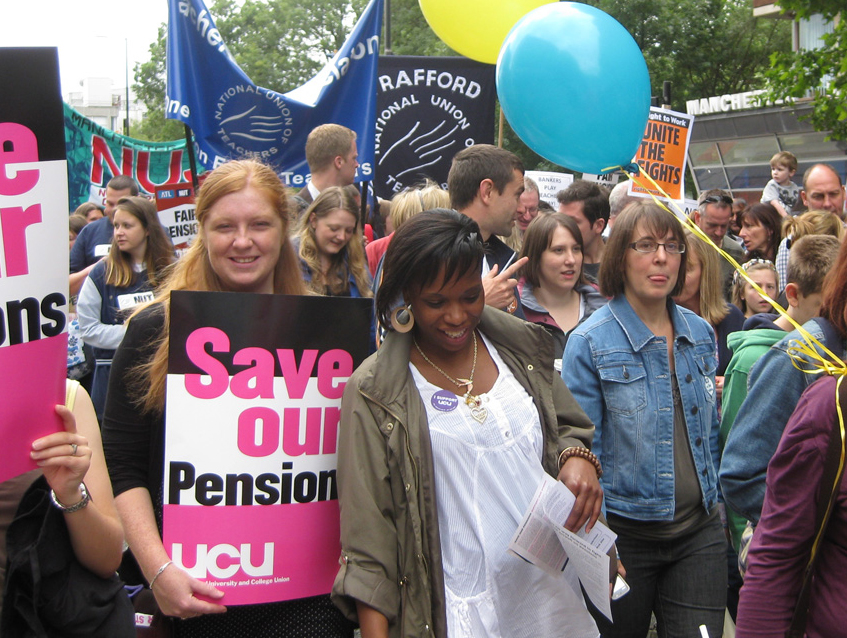Editorial (2) of the Socialist
Pensions battle: Unions must campaign for coordinated strike action in March
At January’s TUC Public Service Liaison Group (PSLG) meeting the leadership of Unison and the GMB confirmed their decision to sign up to the government’s heads of agreement on pensions. The government had offered no real concessions on their previous position: that workers should work longer, pay more for their pensions and get less.
Given that unions who refused to sign have remained in the negotiations, it appears signing gained nothing. Even PCS, whose forthright rejection of the proposed outline agreement saw them excluded, have now been re-admitted to the talks on the civil service pension scheme.
In reality, the urgency of the leaderships of Unison and the GMB and others in signing was to send a signal to both the government and to their members that the dispute was suspended and there was no prospect of building on the incredible two million-strong public sector general strike on 30 November (N30).
Chancellor George Osborne’s autumn statement threatened over 700,000 public sector job losses, widespread privatisation of public services, crucially including the NHS, and a full frontal assault on workers’ employment rights, including facility time for union reps.
So now is the time to fight. The cuts are being felt and their threat recognised. The RCN and BMA health workers’ organisations are preparing to ballot. The National Union of Students has said it will call a walkout against the cuts and privatisation in education.
Unilever
Workers in the private sector in Unilever, construction electricians and the Wincanton oil tanker drivers, to name but a few, are pushing ahead with strike action against attacks on pensions and pay and conditions. RMT members in the privately-owned Docklands Light Railway have forced a favourable bonus arrangement from the employer for work during the Olympics.
A defeat on public sector pensions would be a setback for the whole organised working class. But the struggle is far from over.
At the PSLG Mark Serwotka, PCS general secretary, invited the ‘rejectionist’ unions to meet together to discuss the possibility of coordinating further action. On Wednesday 25 January PCS, NUT, Unite, Nipsa, UCU, POA and others met.
The Socialist Party supports the idea raised by at least PCS, NUT and UCU of a further one-day strike in March before the increased pension contributions are imposed on 1 April as a minimum. This should involve as many unions as possible including Unite, with members in health, local government and the civil service.
The strike of 750,000 workers on 30 June (J30) put huge pressure on the right-wing union leaders and made it virtually impossible for them to resist being involved on N30. Further action, even if smaller than N30, could act as a lever on Unison and the GMB, who could be balloting their members in health and local government on the government’s offer at the same time.
A campaign to mobilise members for the next stage of this battle could counter doubts about the breaking up of the N30 coalition. But members of all unions should be encouraged to continue the struggle for coordinated action in March.









